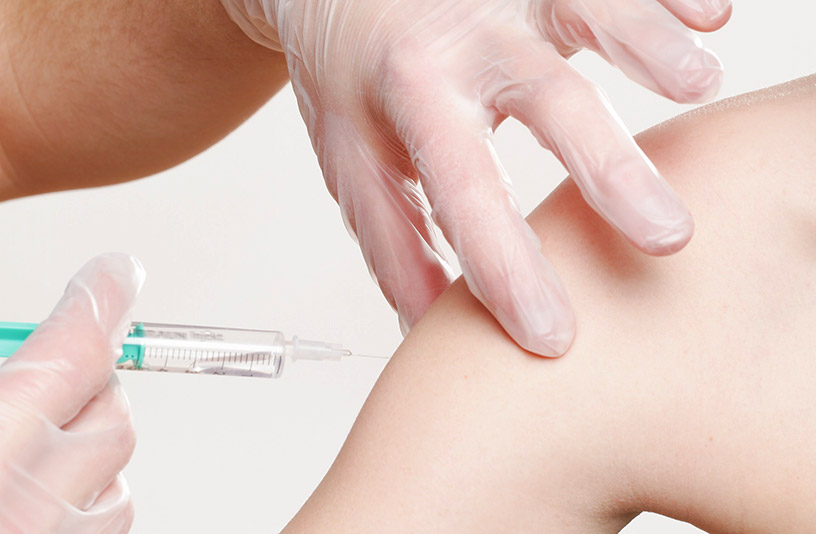Rabies: The Symptoms, Treatment, Causes, & Prevention
You may have heard about Rabies, but do you know exactly what Rabies is? Or the risk you face for contracting the virus when travelling?
As with any other illness, it is important that you understand basic prevention methods to avoid getting the disease.
Rabies is almost always fatal following the onset of clinical symptoms.
So before you jet off on your trip, make sure to do your research to see if Rabies is rampant in the destinations you plan to visit. Speak with your travel doctor and see what precautionary methods you should take before departing on your holiday.
Here’s what you need to know about how to avoid Rabies and what to do if you potentially get exposed to the virus when travelling.
Skip ahead to read:
- What is Rabies?
- How do you get Rabies?
- What are the symptoms of Rabies?
- What treatment do you need for Rabies?
- Is Rabies fatal for humans?
- How to avoid getting Rabies
- Do I need the Rabies vaccine?
- How long before travel should I get the Rabies vaccination?

Rabies isn't the only thing you need to be mindful of when visiting Southeast Asia. Find out how to avoid Bali belly.
The Rabies virus is an infectious disease that is transmissible through the saliva of an infected animal, usually from a bite or scratch that results in breaching the skin.
The Rabies virus exists in 150 countries and territories, but is more common in developing countries in Asia and Africa. Before travelling, check to see if Rabies is widespread in the countries you will be visiting.
You can get Rabies if an animal with the disease bites you, licks a cut or wound on your body, or its saliva gets in your eyes or mouth.
According to the World Health Organization, 99% of cases of Rabies transmission to humans is from dogs.
Any mammal can give you Rabies, but the most common animals to pass the virus to humans include:
- Dogs
- Cats
- Ferrets
- Bats
- Monkeys
- Foxes
You can also get Rabies from dead animals or from infected domestic pets. Don’t assume that a friendly pet is safe, unless you know that the animal has been vaccinated against Rabies.
Check your accommodation when travelling as bats can often enter a room at night, bite a person without waking them and potentially transmit the disease too.

Exploring Asia on your next holiday? Check out these health tips for travelling.
You should seek treatment before any symptoms occur, even if the bite doesn’t look significant or you feel fine. Take precautionary measures and get it checked by a medical professional immediately.
Treatment and prophylaxis need to commence within 72 hours of the exposure, so do not delay seeking treatment.
The first symptoms of Rabies are similar to those you would get with the flu, such as:
- Fever
- Headache
- Nausea
Over time other symptoms may develop. These include:
- Hallucinations (seeing and hearing things)
- Anxiety
- Confusion
- Aggressive behaviour
- Hyperactivity
- Hydrophobia (fear of water)
- Excessive salivation
- Partial paralysis
Symptoms might not occur straight away and could take up to 3 to 12 weeks to appear. Even if you have returned home, you should still seek medical care if an animal has bitten you.
The Rabies virus can kill you once clinical symptoms appear, making it imperative to get medical attention before it is too late.

Seeking travel inspiration or want to read more medical tips for travel? Head over to our dedicated blog!
Getting medical treatment as soon as possible after contact with the infected animal can prevent the onset of symptoms and death.
Do not wait, seek treatment immediately.
You should go to a local health clinic, doctor’s office or hospital straight away. If you’re a Cover-More customer, contact our 24/7 Emergency Assistance team if you need help finding a nearby medical facility.
“Every year, more than 15 million people worldwide receive a post-bite vaccination. This is estimated to prevent hundreds or thousands of Rabies deaths annually.” – World Health Organization
Even if you aren’t sure that you have been bitten, still seek medical advice. Immediate and thorough washing of a bite with soap, water and iodine is vital.
Treatment may involve a series of vaccinations. This treatment can prevent the virus from entering your central nervous system, which would otherwise result in imminent death.
Remember:
- Act quickly if an animal bites or licks you.
- Wash out the wound with soap, water, and iodine for at least 15 minutes.
- Seek prompt medical care, even if you feel well or the wound does not look serious.
Ensure that your chosen travel insurance can provide medical evacuation if deemed necessary.
Not all countries have the facilities to effectively treat Rabies.

Do you have questions about travel insurance? Visit our FAQs page to learn more.
Yes, it can be. Without the necessary treatment, Rabies can be fatal for humans. Once the Rabies infection is established, there is no effective treatment available.
It is important to understand how you can prevent exposure to the disease, and what you can do to minimise your risk when travelling.
Remember to seek medical treatment immediately if you suspect that you, or someone you are travelling with, has contracted Rabies.
If you are visiting a high-risk area, speak with your doctor about getting the Rabies vaccination ahead of time.
Remain aware of the risk of Rabies and do not approach any wild or stray animals.
Some activities, such as exploring caves where bats live, can also put you at an increased risk of being bitten by an animal with Rabies.
Ensure that children in your care are aware that they must avoid animals, and should tell you immediately if they are bitten or licked by one. You should frequently check young children and babies for wounds that may have been caused by an animal.
Consider getting vaccinated against Rabies before travelling to a high-risk country.
Are you planning to spend a lot of time outdoors in rural areas? Or go hiking, mountain climbing or caving? Then you should think about getting the vaccination to protect yourself.
If you will be volunteering or working with animals during your travels, you should also seriously consider getting the Rabies vaccination prior to departing.
Be sure to visit your doctor to discuss your options and level of risk. They will be able to advise if you should get the Rabies vaccine.

Want to protect yourself from measles, too? Here's what you need to know about avoiding the disease.
Talk to your doctor about getting the vaccination at least one month before you leave on your travels. You may be given multiple doses of the vaccine over time to complete the full course.
Do not leave your doctor’s consultation to the last minute!
Even if you have been immunised against Rabies, you should still take precautions to avoid coming in contact with animals. You should still seek medical care if you think an infected animal has bitten you.
Consider protecting yourself with Cover-More travel insurance, in case the unthinkable happens. See our PDS to find out more about our policy coverage.
More medical tips for travel:
- What you need to know about methanol poisoning
- Bali belly – What it is and how to avoid it
- What is Malaria and how to avoid it
- How to avoid measles when travelling
Get a FREE quote for Cover-More travel insurance!
Sources:
Material on this website is provided for informational purposes only. It is general information and discussion about medicine, health and related subjects may not apply to you as an individual, and is not a substitute for your own doctor’s medical care or advice. The words and other content provided on this website, and in any linked materials, are not intended and should not be construed as medical advice. If the reader or any other person has a medical concern, they should consult with an appropriately licensed physician or other health care worker. Nothing contained on the website is intended to establish a physician-patient relationship, to replace the services of a trained physician or health care professional, or otherwise to be a substitute for professional medical advice, diagnosis, or treatment. The views and opinions expressed on this website have no relation to those of any academic, hospital, practice or other institution with which the authors are affiliated. They do not necessarily reflect the opinions of Cover-More Insurance Services Pty Ltd. Never disregard medical advice or delay seeking medical care because of something you have read on or accessed through this website. If you think you may have a medical emergency, call your doctor or emergency services immediately.